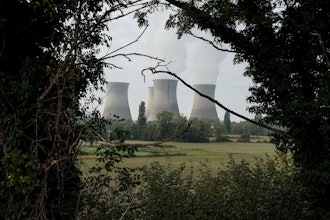
Stellantis N.V. and Vulcan Energy Resources have signed a binding term sheet for the first phase of a multiphase project to develop new geothermal projects aimed at decarbonizing the energy mix of Stellantis’ Rüsselsheim industrial site in Germany, which is home to both the DS4 and Opel Astra. Based upon current assumptions, the project could provide a significant portion of the industrial site’s annual energy needs starting in 2025.
The first phase of the project, located at the northernmost extent of Vulcan’s focus area in the Upper Rhine Valley, will include a pre-feasibility study for the construction of geothermal assets for Stellantis’ facility, carried out by Vulcan. If successful, the next phase will focus on drilling and more advanced studies and development. Stellantis will aim to source funding for 50% of the project development, which is also supported by the local government.
Stellantis and Vulcan will aim to produce clean electricity and supply it to the grid for both internal and external consumption, in accordance with Germany’s Renewable Energy Act (EEG), while also producing heat to be transferred to Stellantis’ manufacturing site.
Stellantis is committed to becoming carbon net zero by 2038, with a 50% reduction by 2030. The agreement with Vulcan Energy marks Stellantis’ first potential use of renewable geothermal energy to decarbonize and localize its energy supply at an industrial site.
The agreement with Stellantis also increases Vulcan’s decarbonizing impact on the European electric vehicle industry, complementing the carbon avoidance from its Zero Carbon Lithium™ Project, and creating shareholder value.






















